Self-coup
A self-coup, also called autocoup (from the Spanish autogolpe), is a form of coup d'état in which a nation's leader, having come to power through legal means, dissolves or renders powerless the national legislature and unlawfully assumes extraordinary powers not granted under normal circumstances. Other measures taken may include annulling the nation's constitution, suspending civil courts, and having the head of government assume dictatorial powers.[1][2]

Peruvian military troops in front of the Congress in Lima followed by the self coup when President Fujimori announcing the temporarily dissolving of the Congress on 5 April 1992
.jpg.webp)
Cavalry in the streets of Paris during the French coup of 1851, where the democratically elected President Louis-Napoléon Bonaparte seized dictatorial power, and one year later was crowned Emperor of the French
Between 1946 and 2020, an estimated 148 self-coup attempts have taken place: 110 in autocracies and 38 in democracies.[3]
Notable events described as self-coups
 Sweden: King Gustav III (August 19, 1772)[4]
Sweden: King Gustav III (August 19, 1772)[4] France: President Louis-Napoléon Bonaparte (December 2, 1851)
France: President Louis-Napoléon Bonaparte (December 2, 1851)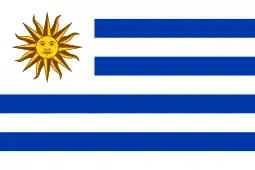 Uruguay: President Juan Lindolfo Cuestas (February 10, 1898)[5]
Uruguay: President Juan Lindolfo Cuestas (February 10, 1898)[5] Germany: Chancellor Adolf Hitler (March 23, 1933)[6]
Germany: Chancellor Adolf Hitler (March 23, 1933)[6] Uruguay: President Gabriel Terra (March 31, 1933)[7]
Uruguay: President Gabriel Terra (March 31, 1933)[7] Estonia: Prime Minister in duties of the State Elder Konstantin Päts (March 12, 1934)[8]
Estonia: Prime Minister in duties of the State Elder Konstantin Päts (March 12, 1934)[8] Latvia: Prime Minister Karlis Ulmanis (May 15–16, 1934)
Latvia: Prime Minister Karlis Ulmanis (May 15–16, 1934) Chile: President Arturo Alessandri Palma (February 1936)[9]
Chile: President Arturo Alessandri Palma (February 1936)[9].svg.png.webp) Kingdom of Greece: Prime Minister Ioannis Metaxas (August 4, 1936)
Kingdom of Greece: Prime Minister Ioannis Metaxas (August 4, 1936) Brazil: President Getúlio Vargas (November 10, 1937)
Brazil: President Getúlio Vargas (November 10, 1937) Uruguay: President Alfredo Baldomir (February 21, 1942)[10]
Uruguay: President Alfredo Baldomir (February 21, 1942)[10].svg.png.webp) Bolivia: President Mamerto Urriolagoitía (May 16, 1951)[11]
Bolivia: President Mamerto Urriolagoitía (May 16, 1951)[11]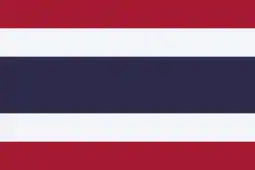 Thailand: Supreme Commander Sarit Thanarat (October 20, 1958)[12]
Thailand: Supreme Commander Sarit Thanarat (October 20, 1958)[12] Thailand: Prime Minister Thanom Kittikachorn (November 18, 1971)[12]
Thailand: Prime Minister Thanom Kittikachorn (November 18, 1971)[12].svg.png.webp) Philippines: President Ferdinand Marcos (September 23, 1972)[13]
Philippines: President Ferdinand Marcos (September 23, 1972)[13] South Korea: President Park Chung-hee (October 17, 1972)[14]
South Korea: President Park Chung-hee (October 17, 1972)[14] Finland: President Urho Kekkonen (January 18, 1973)[15][16]
Finland: President Urho Kekkonen (January 18, 1973)[15][16] Uruguay: President Juan María Bordaberry (June 27, 1973)[1]
Uruguay: President Juan María Bordaberry (June 27, 1973)[1] Peru: President Alberto Fujimori (April 5, 1992)[17]
Peru: President Alberto Fujimori (April 5, 1992)[17]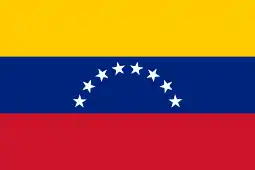 Venezuela: President Nicolás Maduro (March 29, 2017)[18][19]
Venezuela: President Nicolás Maduro (March 29, 2017)[18][19] Sudan: Chairman of the Sovereignty Council Abdel Fattah al-Burhan (October 25, 2021)[20]
Sudan: Chairman of the Sovereignty Council Abdel Fattah al-Burhan (October 25, 2021)[20]
Notable events described as attempted self-coups
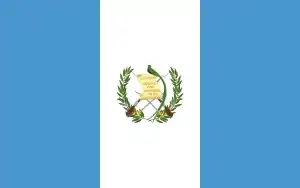 Guatemala: President Jorge Serrano Elías (May 25, 1993 – June 5, 1993)[21]
Guatemala: President Jorge Serrano Elías (May 25, 1993 – June 5, 1993)[21]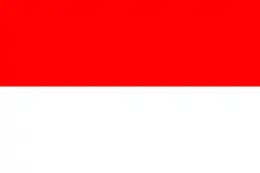 Indonesia: President Abdurrahman Wahid (July 1, 2001 - July 25, 2001)[22]
Indonesia: President Abdurrahman Wahid (July 1, 2001 - July 25, 2001)[22] Malaysia: Prime Minister Mahathir Mohamad (Feb 23, 2020 – March 1, 2020)[23]
Malaysia: Prime Minister Mahathir Mohamad (Feb 23, 2020 – March 1, 2020)[23] United States: President Donald Trump (November 3, 2020 – January 6, 2021)[24][25]
United States: President Donald Trump (November 3, 2020 – January 6, 2021)[24][25]
References
- An early reference to the term autogolpe may be found in Kaufman, Edy: Uruguay in Transition: From Civilian to Military Rule, Transaction, New Brunswick, 1979. It includes a definition of autogolpe and mentions that the word was "popularly" used in reference to events in Uruguay in 1972–1973. See Uruguay in Transition: From Civilian to Military Rule – Edy Kaufman at Google Books.
- Tufekci, Zeynep (December 7, 2020). "'This Must Be Your First'". The Atlantic.
In political science, the term coup refers to the illegitimate overthrow of a sitting government—usually through violence or the threat of violence. The technical term for attempting to stay in power illegitimately—such as after losing an election—is self-coup or autocoup, sometimes autogolpe
- Nakamura, David (January 5, 2021). "With brazen assault on election, Trump prompts critics to warn of a coup". Washington Post. Retrieved January 5, 2021.
- Barton, H. Arnold (1972). "Gustav III of Sweden and the Enlightenment". Eighteenth-Century Studies. 6 (1): 11. doi:10.2307/3031560. JSTOR 3031560.
- "URUGUAY UNDER A DICTATOR.; Senor Cuestas Executes a Coup d'Etat and Dissolves the Assembly. (Published 1898)". The New York Times. February 11, 1898.
- "Germany 1933: from democracy to dictatorship". Anne Frank Website. September 28, 2018.
- "The March Revolution in Uruguay 1933". www.onwar.com.
- XX sajandi kroonika, I osa. Eesti Entsüklopeediakirjastus. Tallinn, 2002. P. 383"/>
- Bizzarro, Salvatore (April 20, 2005). Historical Dictionary of Chile. Scarecrow Press. p. 128. ISBN 978-0-8108-6542-6.
- "Biography of Alfredo Baldomir (1884-1948)". thebiography.us.
- "The Bolivian Revolution". www.latinamericanstudies.org.
- "Counting Thailand's coups". March 8, 2011.
- "Declaration of Martial Law". Official Gazette. Republic of the Philippines. Retrieved June 18, 2016.
- The Military in Politics Library of Congress Country Studies
- Veikko Vennamo, "As a Prisoner of the Kekkonen Dictatorship" / Kekkos-diktatuurin vankina, published in Finland in 1989).
- Johannes Virolainen, "The Last Electoral Term"
- Kenney, Charles D. (2004). Fujimori's coup and the breakdown of democracy in Latin America. University of Notre Dame Press. ISBN 0-268-03171-1.
- Casey, Nicholas; Torres, Patricia (March 30, 2017). "Venezuela Muzzles Legislature, Moving Closer to One-Man Rule". The New York Times. Retrieved March 31, 2017.
- "Venezuela's high court dissolves National Assembly". CNN. Retrieved March 30, 2017.
- "Sudan's self-coup and four factors that will determine what comes next | African Arguments". October 27, 2021.
- Barry S. Levitt (2006), "A Desultory Defense of Democracy: OAS Resolution 1080 and the Inter-American Democratic Charter, Latin American Politics and Society, Volume 48, Issue 3, September 2006, Pages: 93–123. pp104-5
- Ingraham, Christopher (January 22, 2021). "Coup attempts usually usher in long stretches of democratic decline, data shows". Washington Post.
- Reuters Staff (February 25, 2020). "Mahathir proposes to lead 'unity government' - sources". Malaysiakini.
- Call, Charles (January 8, 2021). "No, it's not a coup — It's a failed 'self-coup' that will undermine US leadership and democracy worldwide". Brookings Institution.
- Hill, Fiona (January 11, 2021). "Yes, It Was a Coup. Here's Why". Politico. Retrieved January 11, 2021.
Technically, what Trump attempted is what’s known as a “self-coup” and Trump isn’t the first leader to try it. Charles Louis Napoleon Bonaparte (nephew of the first Napoleon) pulled one off in France December 1851 to stay in power beyond his term. Then he declared himself Emperor, Napoleon III. More recently, Nicolas Maduro perpetrated a self-coup in Venezuela after losing the 2017 elections.
This article is issued from Wikipedia. The text is licensed under Creative Commons - Attribution - Sharealike. Additional terms may apply for the media files.